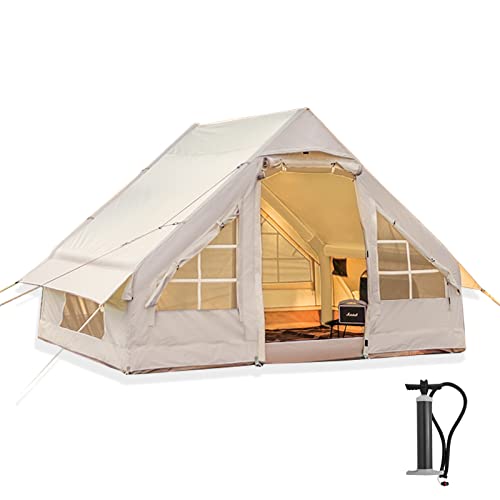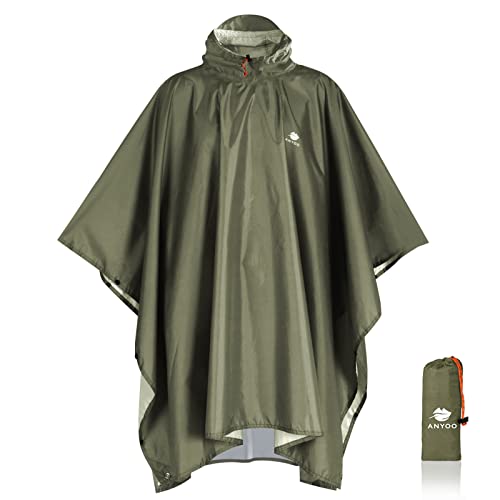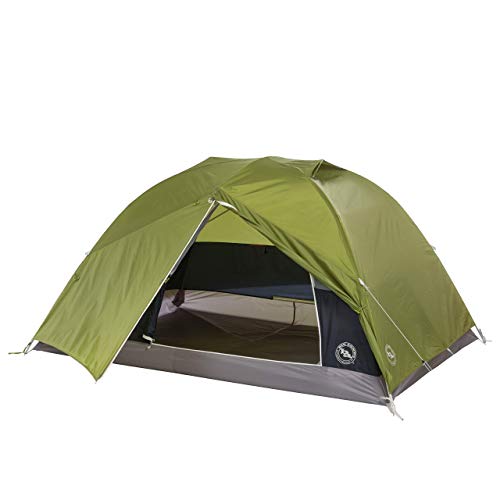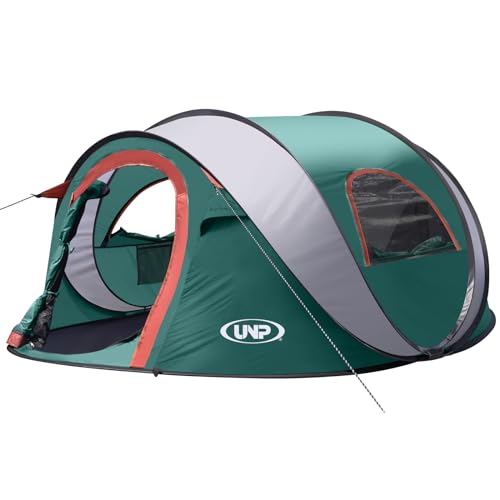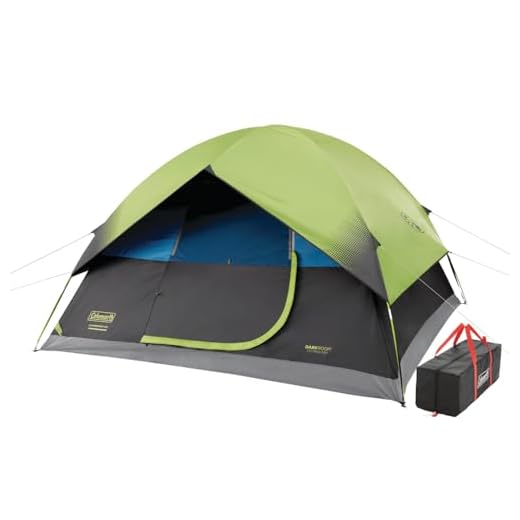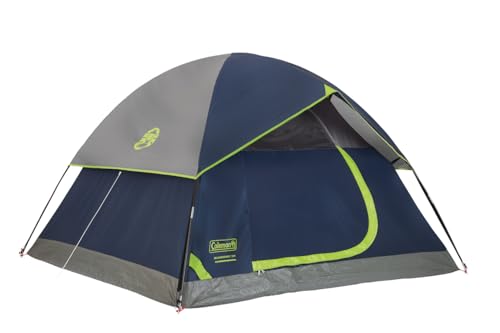As the sun rises over a pristine landscape, the call of nature beckons outdoor enthusiasts to venture into the great outdoors. Eco-conscious camping is not just a trend; it represents a fundamental shift in how we connect with our planet. By choosing to camp sustainably, we take steps toward preserving the environment for future generations. It’s about embracing responsible travel practices that safeguard our natural resources while allowing us to enjoy their beauty.
Supporting sustainable campgrounds is crucial in this journey. These sites prioritize ecological stewardship and create spaces where both people and wildlife can thrive. When you choose an eco-friendly campground, you’re not only enhancing your own camping experience but also contributing to the health of ecosystems around you. Together, we can foster a deeper appreciation for nature and make mindful decisions that lead to lasting change.
Join us as we explore the best sustainable campgrounds across the country and discover how these incredible locations are leading the charge for eco-conscious travel. Whether you’re a seasoned camper or new to outdoor adventures, there’s much to learn—and even more to protect—on your next expedition into nature’s embrace. Let’s dive in!










What Makes a Campground Eco-Friendly?
When searching for eco-friendly campgrounds, it’s essential to consider several key features that reflect their commitment to sustainability. Look for sites that prioritize environmental education, offering workshops or guided nature walks to help campers understand the delicate balance of local ecosystems. Water conserving practices, such as utilizing drought-resistant landscaping or rainwater harvesting systems, are also indicators of a campground’s dedication to protecting resources. Additionally, accommodations that use reclaimed wood and other sustainable building materials demonstrate an effort to minimize their ecological footprint while providing campers with unique and attractive environments.
Renewable energy sources play a pivotal role in the creation of truly sustainable campgrounds. Many eco-friendly sites now harness solar power to provide electricity for lighting and facilities, reducing reliance on traditional energy sources and lessening greenhouse gas emissions. For instance, some campgrounds feature solar panel installations that not only power communal areas but also educate guests about renewable energy utilization during their stay. A specific example is Green River Lakes Campground in Wyoming, which complements its stunning natural vistas with solar-powered amenities aimed at fostering responsible outdoor experiences.
Effective waste management practices are paramount when assessing a campground’s eco-friendliness. Sites that incorporate composting toilets promote sanitation innovation while diverting human waste from landfills and treating it in an environmentally friendly manner. This practice helps reduce water usage significantly since composting toilets require minimal flushing compared to traditional systems. Furthermore, look for campgrounds with established recycling programs and initiatives encouraging the use of reusable containers over disposable items—an essential step toward minimizing waste generated during your visit.
Ultimately, identifying these characteristics creates opportunities for responsible travelers to connect deeply with nature while supporting ground-breaking efforts in conservation and sustainability. When we choose environmentally aware campgrounds equipped with renewable energy sources and effective waste management strategies, we contribute positively to preserving beautiful landscapes for generations to come. By embracing these standards in our camping journeys, we can enhance our outdoor adventures without compromising the health of our planet.
Highlighting Sustainable Practices
At the forefront of eco-conscious camping are conservation education initiatives that empower campers to become stewards of nature. Many sustainable campgrounds offer educational programs, workshops, and guided tours aimed at teaching visitors about local ecosystems, wildlife preservation, and best practices for reducing environmental impact. For instance, a prominent campground in Northern California hosts weekly nature talks led by local experts, where attendees learn how their choices can influence both the environment and the communities surrounding them. These initiatives not only enrich the camping experience but also inspire people to take proactive steps toward sustainability long after they leave the site.
Biodiversity protection is another critical aspect of sustainable campground practices. Campgrounds often prioritize habitat restoration projects to support endangered species or sensitive ecosystems. Take for example a campground nestled within Colorado’s Rockies; here, you’ll find trail markers that educate hikers on rare alpine flora, emphasizing the delicate balance necessary for preserving local biodiversity. This commitment not only fosters an appreciation for nature but also assures campers that they are playing a part in safeguarding these precious habitats throughout their visit.
Choosing campgrounds that prioritize local resources provides additional layers of sustainability benefits—both environmentally and economically. Supporting nearby communities becomes easier when campgrounds source materials locally, from building supplies to organic food options offered in their general stores. For example, a popular eco-campground in Maine works with nearby farms to supply fresh produce to campers while simultaneously promoting regional agriculture. This synergy between recreation and community support not only enriches the camper’s experience but also strengthens local economies and enhances social bonds amongst locals and travelers alike.
By participating in these vital conservation education initiatives and supporting businesses dedicated to preserving biodiversity and empowering local markets, campers can ensure that their love for the outdoors translates into tangible benefits for our planet and its communities—one campsite at a time. Embracing these sustainable practices creates ripple effects that extend far beyond just individual trips; they foster a collective movement towards more responsible outdoor adventures for generations to come.










Top Eco-Conscious Campgrounds to Visit
When it comes to eco-conscious camping, there are numerous campgrounds across the country that exemplify sustainable practices, making them ideal spots for environmentally aware travelers. One standout is the Glamping Hub in California’s Big Sur region, which features luxurious tent accommodations designed with minimal impact on the landscape. Set on a biodynamic farm, this unique campground uses solar energy and allows guests to participate in farm activities such as planting and harvesting crops, fostering not just a connection to nature but also understanding sustainable agriculture.
Another exceptional destination is Acadia National Park’s Blackwoods Campground in Maine. This campground emphasizes preserving local ecosystems through its commitment to waste reduction and habitat protection initiatives. Facilities here utilize composting toilets, helping minimize environmental footprints while protecting nearby water resources. Reviews from past campers highlight not only the stunning surroundings but also their appreciation of well-maintained trails and educational signage focused on wildlife preservation efforts throughout the park.
In the Pacific Northwest, Lakedale Resort on San Juan Island offers an intriguing blend of rustic charm and modern sustainability practices. Featuring cabins made from reclaimed materials and solar-powered amenities, this charming resort encourages eco-friendly adventures like kayaking and hiking—all while maintaining the integrity of its gorgeous natural environment. Visitors rave about how deeply connected they feel to nature during their stay, with many highlighting guided eco-tours led by passionate local experts who share insights on preserving marine habitats.
These exemplary campgrounds create fulfilling experiences for eco-travelers while educating visitors on responsible environmental stewardship. Choosing any of these locations not only guarantees a memorable outdoor adventure but also supports essential conservation efforts—ensuring that future generations can enjoy these beautiful landscapes too. With testimonials pouring in from satisfied campers, it’s clear that connecting with nature sustainably can be both inspiring and enjoyable every step of the way.
Tips for Responsible Camping
When embarking on an outdoor adventure, it’s crucial to embrace the principles of “Leave No Trace,” which advocate for preserving the natural beauty that you seek. This means planning ahead by familiarizing yourself with campground regulations and sticking to marked trails to minimize soil erosion and protect fragile ecosystems. Pack out what you pack in—don’t leave behind food wrappers, camping gear, or any other waste. By ensuring that your campsite remains clean when you depart, you’re helping maintain a healthy habitat for wildlife and supporting sustainable ecosystems.
In addition to reducing litter, campers can significantly minimize their environmental footprint by choosing eco-friendly camping practices. Bring reusable water bottles instead of single-use plastics and opt for biodegradable soap to wash dishes. Cooking over a campfire not only enhances the experience but also allows you to utilize local resources like firewood while following guidelines about gathering wood ethically. Furthermore, consider using solar-powered chargers for your devices so you can enjoy modern amenities without relying on fossil fuels. These small choices add up and contribute positively toward protecting our planet.
Engaging in local conservation efforts during your stay is another meaningful way to give back while enjoying nature. Many sustainable campgrounds offer volunteer programs where visitors can join in habitat restoration projects or participate in educational workshops about local flora and fauna. For instance, at several parks across the country, volunteers are involved in annual cleanup days or tree planting events that help preserve delicate areas while fostering community spirit among campers. You can also consider making a donation to local conservancies or purchasing products from nearby artisans whose work supports ecological initiatives.
Ultimately, responsible camping is more than just adhering to rules; it’s about cultivating a mindset focused on stewardship of our natural world. By taking these actionable steps—leaving no trace, adopting sustainable practices, and engaging with conservation efforts—you’ll enhance not only your own outdoor experience but also contribute towards the love and protection of our precious landscapes for future generations.










Gear Up for Sustainable Camping
When embarking on an eco-conscious camping adventure, the gear you bring along can significantly impact your environmental footprint. Opting for sustainable and eco-friendly camping equipment is a fantastic way to enhance your outdoor experience while supporting the planet. Consider investing in high-quality, durable items such as tents made from recycled materials, or sleeping bags that are both lightweight and free from synthetic fibers. Brands like Sea to Summit and Nemo offer such products, ensuring that you can enjoy nature without contributing to wasteful practices.
To minimize waste during your camping trip, prioritize reusable options over single-use items. This means swapping out disposable cutlery and plates for compact, washable alternatives made from bamboo or stainless steel. Additionally, invest in a reusable water bottle equipped with a built-in filter, allowing you to hydrate sustainably anywhere without relying on plastic bottled water. Small changes like these not only reduce litter but also pave the way for a more environmentally friendly approach to enjoying the great outdoors.
Another crucial aspect of packing sustainably is choosing biodegradable products wherever possible. From compostable soap and detergent to plant-based insect repellents, selecting biodegradable items ensures that whatever gets washed away will break down naturally rather than polluting local ecosystems. You might find brands like Dr. Bronner’s offer organic soaps that fulfill this requirement beautifully. By embracing biodegradable options not only do you lessen your impact on delicate environments but also promote healthier soil and waterways by minimizing harmful chemicals.
Overall, gearing up for sustainable camping reflects a commitment to planetary preservation while enhancing the camping experience itself. With thoughtful selection of eco-friendly equipment and adherence to zero-waste principles through reusable items and biodegradable supplies, campers can engage more deeply with their surroundings and inspire others along the way—proving that adventure doesn’t have to come at the expense of our natural world.
The Impact of Eco-Conscious Camping on Local Ecosystems
Eco-conscious camping is not just about enjoying the great outdoors; it also plays a crucial role in benefiting local ecosystems. Responsible tourism practices help preserve wildlife habitats and support nature reserves by directing funds toward their conservation. Campers who choose sustainable campgrounds often find themselves surrounded by carefully maintained environments that promote biodiversity. For instance, some campgrounds implement strategies such as controlled burn practices and rewilding efforts to restore natural habitats for native species. This hands-on approach fosters a deeper connection with nature, allowing campers to witness firsthand how their choices positively impact surrounding flora and fauna.
The long-term effects of establishing sustainable campgrounds extend beyond immediate benefits. These eco-friendly sites prioritize environmental protection and resource management, leading to healthier ecosystems over time. By utilizing renewable energy sources, conserving water, and implementing waste reduction systems like composting toilets, these campgrounds significantly reduce their ecological footprints. Campers can see the fruits of these efforts in thriving wildlife populations and pristine landscapes—a testament to how responsible actions today lay the groundwork for future generations to enjoy the beauty of nature’s bounty.
Community Involvement in Sustainability Initiatives
Incorporating community involvement into sustainability initiatives has become a hallmark of many eco-conscious campgrounds. Campground owners are increasingly recognizing the importance of engaging local communities in developing environmentally responsible practices that benefit both visitors and residents alike. For example, some campgrounds collaborate with nearby schools or non-profit organizations to host educational programs about local ecology or conservation challenges faced in their region. This partnership fosters a spirit of stewardship within the community while providing campers with unique insights into the area’s natural heritage.
Moreover, many sustainable campgrounds offer opportunities for campers to give back through volunteer projects during their stay. Whether participating in local clean-up days or assisting with habitat restoration efforts, visitors feel a sense of agency knowing they play an active role in maintaining the beauty of the environment they cherish so much. Such experiences create lasting memories and encourage travelers to adopt eco-conscious behaviors even when they return home—ultimately fostering a broader culture of environmental awareness within society at large. By supporting these initiatives during their visits, campers contribute to making a positive difference that resonates well beyond their individual experiences.










Inspiring Stories from Eco-Conscious Campers
As the sun dipped below the horizon, Karen and her family found themselves gathered around a crackling campfire at Green Meadows Campground, nestled deep in the heart of West Virginia. What started as a traditional family camping trip quickly evolved into a profound lesson on sustainability and environmental stewardship. The campground offered daily workshops on local flora and fauna, and after attending one led by a passionate park ranger, Karen’s ten-year-old son became fascinated with native plants. This newfound love for nature sparked discussions back at home about biodiversity and conservation—conversations that continue as they explore low-impact gardening practices.
Similarly, during a visit to EcoLake Campsite in Oregon, Mark, an avid hiker, encountered something he never expected: transformative advocacy for water conservation. While mingling with fellow campers during an evening presentation hosted by the campground’s owners, Mark learned about their innovative rainwater harvesting system and its impact on the surrounding ecosystem. Inspired by this project, he returned home motivated to reduce his own water usage and share these practices with his community. Mark also volunteered for local clean-up initiatives after witnessing first-hand how small actions have long-term implications for natural habitats.
These stories are not unique; they represent shifts in knowledge and behavior driven by eco-conscious camping experiences across the country. Many travelers report that their visits to sustainably managed sites lead them to become lifelong advocates for environmental causes. For instance, after spending just one weekend at Woodland Retreat in Colorado—a campground known for its composting toilets and waste-reducing policies—group of friends decided to convert their social gatherings into “Zero Waste” events. They now share their journey of cutting down single-use plastics through blogs and social media platforms, encouraging others to embrace sustainable living.
Each camper’s experience serves as a reminder of how exposure to eco-friendly practices can lead individuals to make meaningful changes both personally and socially. These anecdotes reveal that sustainable campgrounds do more than provide a place to pitch your tent—they cultivate connections between nature lovers who carry these lessons home, fostering environmentally conscious communities that aim to leave positive impacts on both local ecosystems and global challenges.
Embrace Eco-Conscious Camping for a Greener Tomorrow
As we’ve explored, supporting sustainable campgrounds plays a crucial role in preserving our beautiful landscapes and ecosystems. By choosing eco-friendly sites, you contribute to conservation efforts that protect wildlife and promote biodiversity. Every trip becomes an opportunity to enjoy nature while making a positive impact on the environment.
Now is the time to take action. Make conscious decisions about where you camp. Seek out properties dedicated to sustainable practices. Let your travels reflect your commitment to protecting our planet. Together, we can experience the great outdoors responsibly and inspire others to join us on this path toward eco-conscious camping. Happy adventures!

